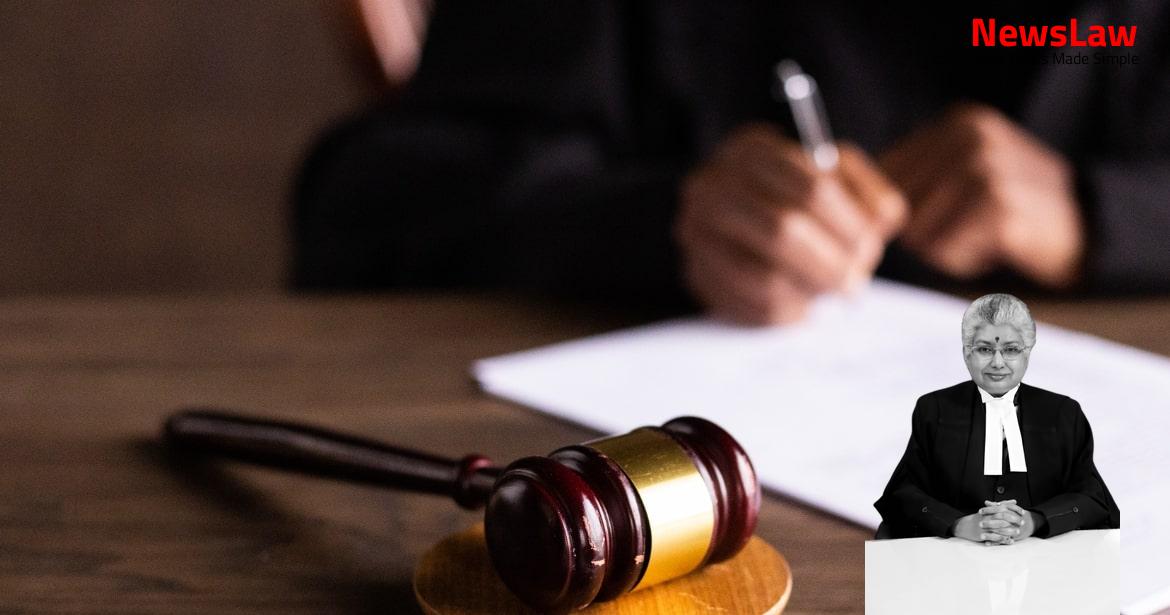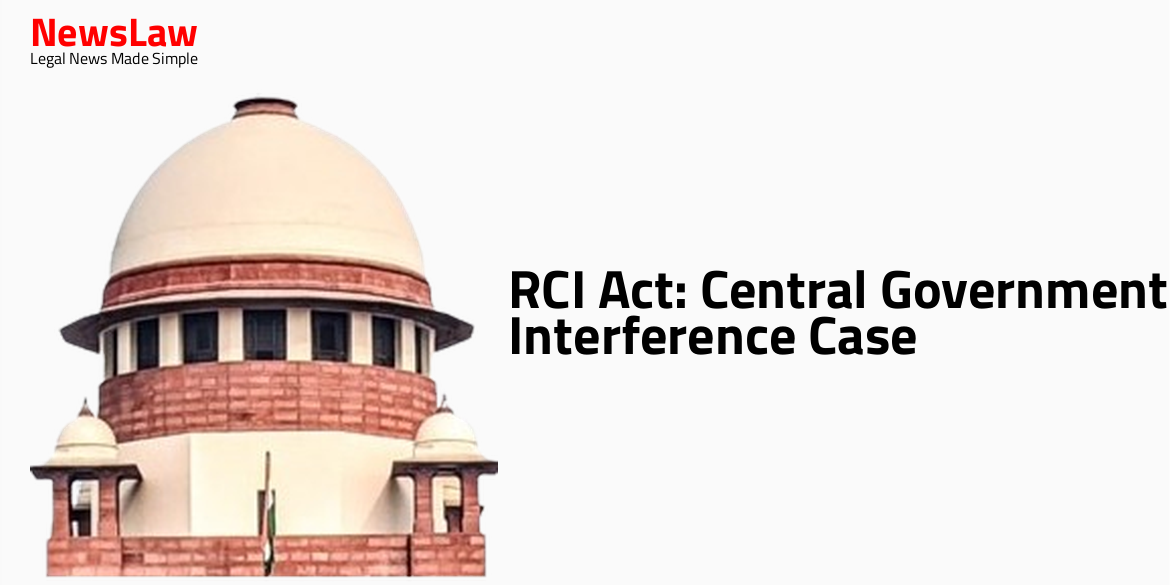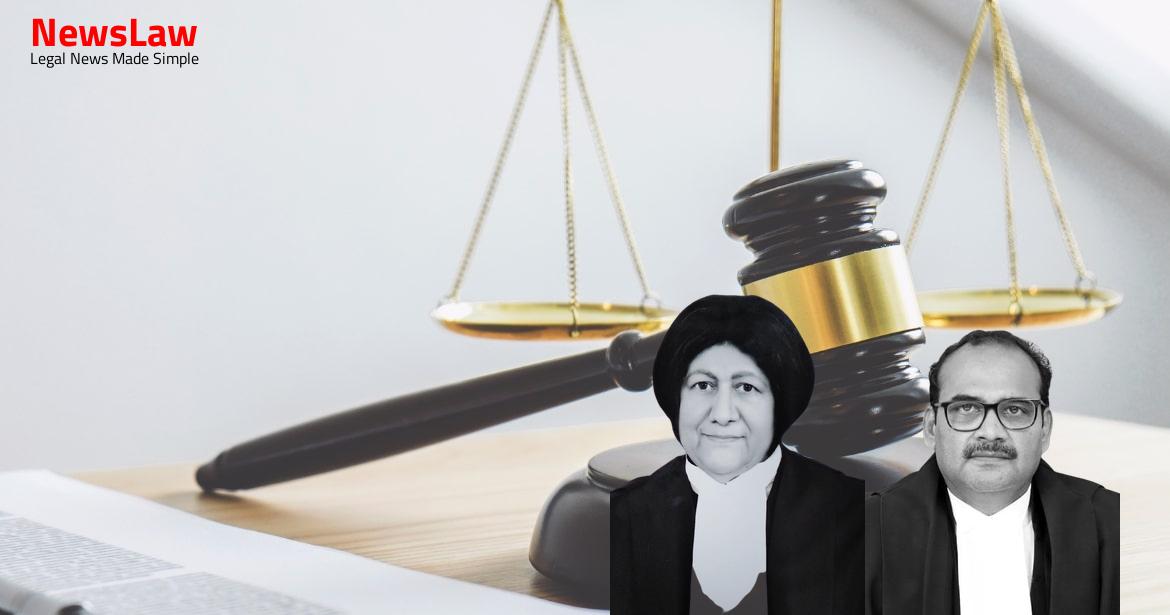Explore a groundbreaking legal ruling that delves into the significance of necessary parties in court proceedings. The court’s detailed legal analysis emphasizes the crucial role of impleading all relevant parties to ensure a valid judgment. Stay informed about the latest developments in legal procedures and the implications for fair price shop license holders.
Facts
- Respondent No. 9 was granted a fair price shop license but complaints were received regarding malpractices by the shop dealer.
- The Appellate Authority canceled the license based on the complaints.
- Respondent No. 9 filed a writ petition in the High Court, challenging the cancellation of the license.
- The High Court found that the cancellation was done without a proper inquiry process.
- The High Court, relying on a Full Bench decision, allowed the writ petition and set aside the cancellation of the license.
- The appellant is now appealing against the High Court’s decision.
- An inquiry was conducted by the SDO after a show cause notice was issued to respondent No.9.
- Statements were recorded and a site inspection was conducted on 3 June 2017.
- Various irregularities and malpractices were found in the operation of the fair price shop.
- Respondent No.9 appealed the cancellation of the Fair Price Shop license to the Appellate Authority.
- The appeal was dismissed by the Appellate Authority on 20 July 2018.
- The license to run the fair price shop was granted to the present appellant, Ram Kumar, on 15 May 2018.
Also Read: Presumption of Genuine Endorsements in Cheque Case
Arguments
- The appellant argues that they were a necessary party as a subsequent allottee.
- The respondent counters, citing a court case, that a subsequent allottee is not a necessary party during legal proceedings initiated by an earlier allottee.
- The respondent asserts that the appellant had no right or locus to be impleaded in the case.
- The appellant’s non-joinder in the proceedings before the High Court is highlighted as a grounds for the appeal to be allowed.
- It is claimed by another counsel that the respondent was aware of the appellant’s allotment during the appeal but did not disclose this information in the writ petition, making a false statement.
- The appellant was not a necessary party before the High Court for granting the relief in the absence of the appellant.
- The proceedings against respondent No.9 were allegedly initiated due to political rivalry.
- The High Court should have heard the appellant before restoring the license of respondent No.6, as the appellant was the subsequent allottee, and his rights were affected by the restoration.
- No interference is warranted in the present matter considering the above points.
Also Read: Medical Negligence and Compensation: A Landmark Decision
Analysis
- The Full Bench of the Allahabad High Court clarified the issue of interim arrangements for fair price shop holders upon suspension or cancellation of a license.
- Contrary to a previous Division Bench ruling, the Full Bench held that the State could make a regular allotment during the appeal process.
- In a different case, it was noted that the subsequent allottee had participated in all stages, indicating fair treatment.
- The importance of impleading necessary parties in legal proceedings was emphasized through various court cases cited.
- Failure to implead a necessary party could result in the dismissal of the entire suit, as per a Supreme Court ruling.
- A ‘necessary party’ is a person who should have been joined as a party.
- The absence of a necessary party would prevent the court from passing an effective decree.
- Without the presence of a necessary party, the court would not be able to issue a valid judgment.
- The appellant was selected by the Tehsil Level Selection Committee and appointed as Fair Price Dealer on a regular basis.
- A necessary party is crucial for an effective decree to be passed by the court.
- The subsequent allottee was attempting to establish independent rights, but the Court found it difficult to agree.
- The High Court erred in restoring the license of respondent no.6 without hearing the appellant, whose rights were affected.
- Even if a subsequent allottee lacks independent rights, they still have the right to be heard and defend the order of cancellation.
- Respondent No.9 misled the High Court by suppressing facts about the subsequent allotment of the fair price shop to the appellant.
- During the pendency of the appeal, the appellant was appointed as the Fair Price Dealer on the recommendation of the Tehsil Level Selection Committee.
- The appellant was considered a necessary party in the proceedings before the High Court, despite the order of appointment being subject to the court’s outcome.
- Non-disclosure of relevant and material documents with the intention to gain an undue advantage constitutes fraud.
Also Read: Remand of Writ Petition for Restoration and Decision on Merits
Decision
- The order cancelling the Fair Price Shop licence of respondent No. 9 is affirmed
- The appeal dismissing the cancellation is affirmed
- Pending applications are disposed of
- No costs are awarded
- Judgment obtained by fraud is considered a nullity
- Respondent No. 9 suppressed material facts and misled the High Court
- The appeal is allowed and the High Court’s order is quashed
Case Title: RAM KUMAR Vs. THE STATE OF UTTAR PRADESH (2022 INSC 1034)
Case Number: C.A. No.-004258-004258 / 2022



